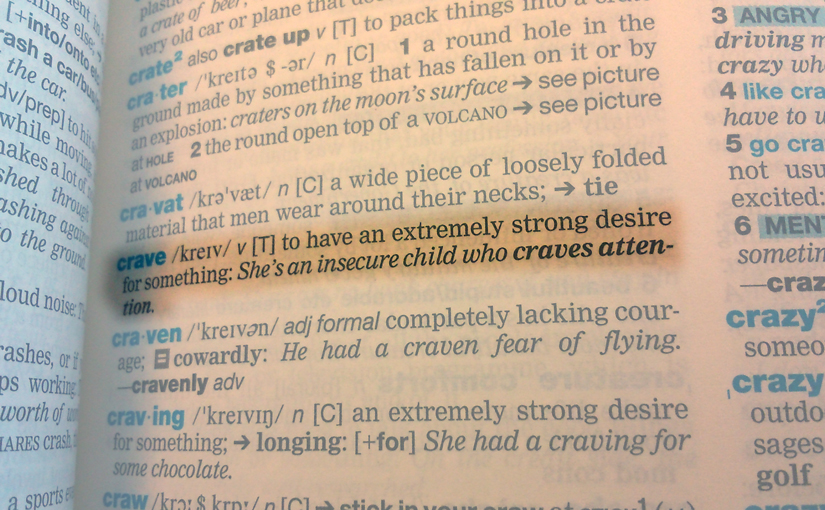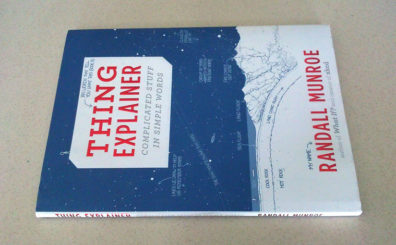
Crave vs. crave for
It used to be normal to say “[someone] craved for [something]” instead of “[someone] craved [something]”. The former sounds like a mistake to me, as if the speaker meant to say “[someone] had a craving for [something]”.
I’m not the only one with this intuition.
The difference is whether the verb “crave” is considered transitive, thus requires a direct object to follow immediately, or is considered intransitive, in which case a prepositional phrase beginning with “for” is needed.
Modern dictionaries list only the transitive version (as above), or they list the transitive version first, followed by the less common intransitive version.
The “wrong” (historically more popular, intransitive) version appears in the 1911 novel Peter and Wendy, aka Peter Pan, by J.M. Barrie, a respected work of literature in English:
It was all owing to his too affectionate nature, which craved for admiration.
The text refers to Mr. Darling, father of Wendy, John, and Michael.


